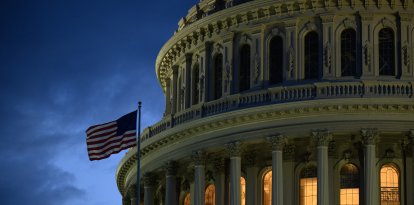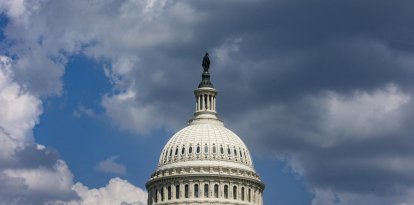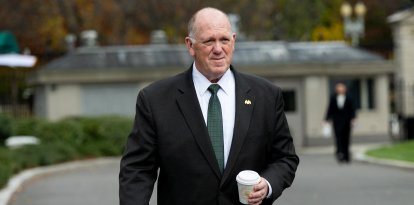84% of those employed in Maricopa election believe results will not be "accurate and honest"
Only 1% of the employees agree with the statement that "the election results in your state are completely accurate and honest."

Kari Lake / Gage Skidmore (Flickr).
According to a survey of election workers in Maricopa County, five out of six do not have confidence that the process honestly reflects voters' intentions.
The survey was conducted by the Election Integrity Network. Among the workers who have participated in the process are observers, party employees, officials, volunteers and others.
Of the sample collected by the organization, 84.38% say: "Not at all confident" that "the election results in their state are completely true and honest." On the other hand, 13.54% have "some confidence." And only 1.04% have "a great deal of confidence" in the accuracy and honesty of the process.

This Twitter thread, made by Donald Trump spokeswoman Liz Harrington, reflects the contents of the report:
An election in question
The choice is in question. In a letter sent to the Maricopa County Attorney's Office by Deputy Attorney General Jennifer Wright, the Election Integrity Unit of the Arizona attorney general's office notified the county that they had received "hundreds of complaints since Election Day on issues related to the administration of the 2022 general election."
As a result, the Election Integrity Unit has asked the county to explain all the irregularities committed on election day. The report is due by the 28th, the date by which the county must send the election certification to the Arizona Secretary of State.
The Secretary of State is the body in charge of the smooth running of the elections. Among other issues, it has to monitor that there are no irregularities that could benefit one or the other candidate for the government of Arizona. It so happens that the secretary of state is one of the two candidates: Democrat Katie Hobbs, who has provisionally won the gubernatorial election.
Printers that stopped working
One of the problems stems from the fact that the printers that printed the ballots in several of the polling stations did so incorrectly. As a result, numerous machines responsible for identifying and counting the votes were unable to do so. This meant that many voters had to wait a long time to cast their ballots. Many of them were not willing to wait, and did not exercise their right to vote.
These problems, as denounced by the other gubernatorial candidate, Kari Lake, only occurred in Republican-majority areas. Voting center employees checked the operation of the printers the day before, and reported that the operation was perfect.
Door 3
On the other hand, and following the instructions of the officials, voters were instructed to deposit their ballots in a container called "door 3." The objective is that these votes will be tabulated in a tabulation center after the elections are held.
Board of Supervisors Chairman Bill Gates and County Recorder Stephen Richer said these ballots would be tabulated (counted). But, according to the letter, that did not happen. Says Assistant U.S. Attorney Jennifer Wright:
No certificate of abandonment of the process
Another of the irregularities recorded by the letter refers to the system that allows voters to exit. If they try to vote at one of the machines and cannot, they must register that they are abandoning the process.
Many voters who found that they could not exercise their right tried to register the abandonment of the process in order to vote elsewhere, but the system malfunctioned. Thus, when they tried to vote in another place where the machines worked, the system prevented them from doing so because they said they had voted in the original place.

























